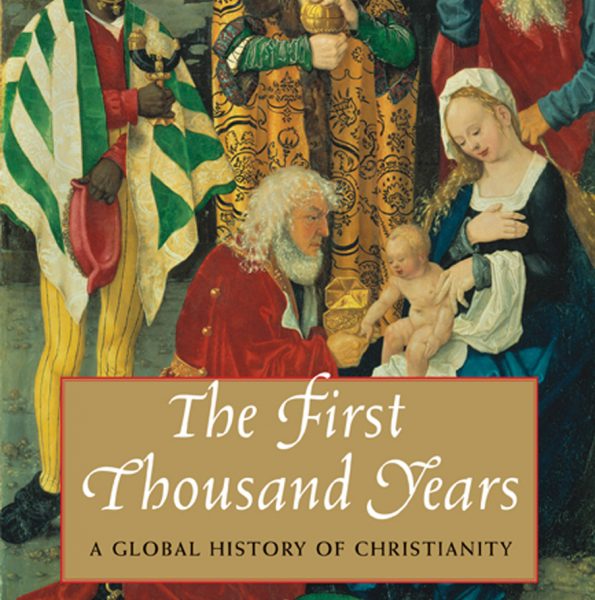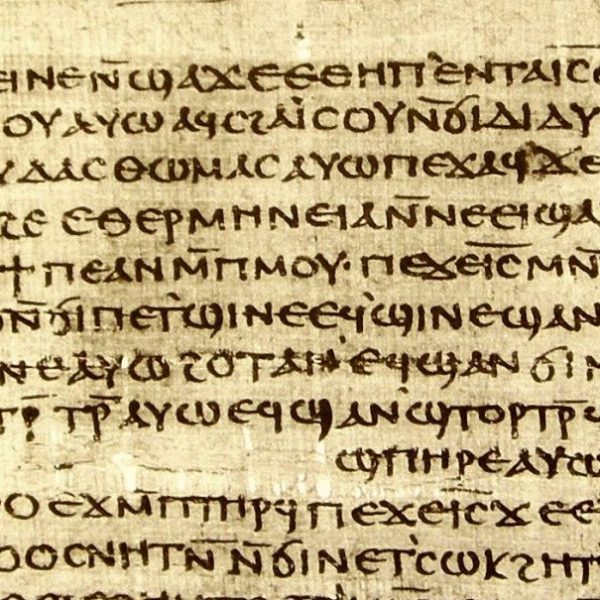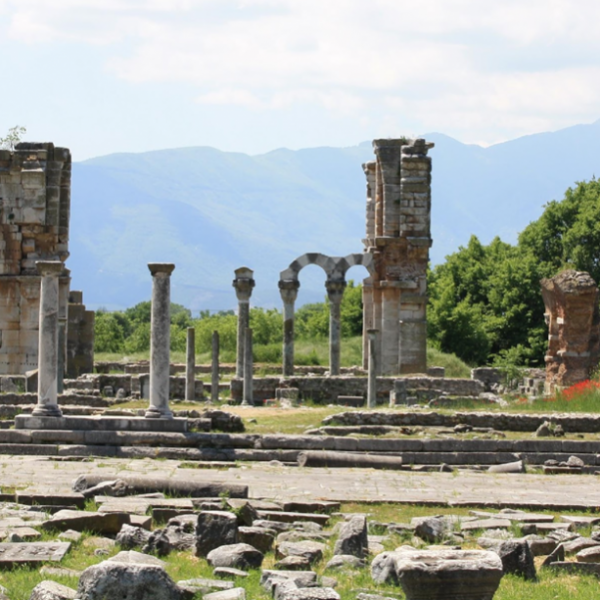The First Thousand Years of Christianity
 Robert Louis Wilken is the William R. Kenan Professor of the History of Christianity Emeritus at University of Virginia. His work focuses on the Bible and the way it has influenced culture throughout the history. Wilken is a truly prolific writer, authoring ten books, including The Land Called Holy: Palestine in Christian History and Thought, The Christians as the Romans Saw Them, and The Spirit of Early Christian Thought: Seeking the Face of God, all published by Yale University Press. His latest book, The First Thousand Years: A Global History of Christianity, to be published this month by Yale University Press, is an epic look at the history of Christianity, throughout time and across borders, through times of strength and others of near extinction. Wilken has been working on this piece for ten years and researching this expansive topic his entire career. Below is an excerpt from the Introduction of The First Thousand Years:
Robert Louis Wilken is the William R. Kenan Professor of the History of Christianity Emeritus at University of Virginia. His work focuses on the Bible and the way it has influenced culture throughout the history. Wilken is a truly prolific writer, authoring ten books, including The Land Called Holy: Palestine in Christian History and Thought, The Christians as the Romans Saw Them, and The Spirit of Early Christian Thought: Seeking the Face of God, all published by Yale University Press. His latest book, The First Thousand Years: A Global History of Christianity, to be published this month by Yale University Press, is an epic look at the history of Christianity, throughout time and across borders, through times of strength and others of near extinction. Wilken has been working on this piece for ten years and researching this expansive topic his entire career. Below is an excerpt from the Introduction of The First Thousand Years:
Robert Louis Wilken—
“What power preserves what once was, if memory does not last?’’ These words from the Lithuanian poet Czeslaw Milosz kept coming to mind as I was writing this book. The past doesn’t vanish at once; it dies slowly. But if remembered, the dead maintain their ground and live among us.
Historical memory, like all memory, is selective, and there are many claimants to the telling of Christianity’s early history. The Christian Church has a long and crowded past, and whether by design, forgetfulness, or ignorance, its history will be remembered in different ways. Our knowledge of the past is not objective but personal and participatory. In writing the history of the first thousand years I have chosen to highlight those events and persons that, in my judgment, are worthy of remembrance at the beginning of the third millennium.
In many books on early Christianity the accent falls on the first several centuries. And for good reason. The formulation of the Church’s central beliefs, the development of its distinctive practices, and the establishment of its most enduring institutions took place during the first five centuries. Christianity did not come into the world full-blown, and these years will have a resonance without parallel in any account of Christian history. The story of beginnings, however, requires a wider horizon. Only toward the end of the first millennium did the form Christianity took in history come fully into view. I begin with Jesus of Nazareth in the first century and end with the baptism of Vladimir, the Rus prince in Kiev at the close of the millennium in 988. By the year 1000 the map of the early Christian world was largely complete.
The emergence of Christianity brought about one of the most profound revolutions the world has known, and the principal theme of this book is the slow drama of the building of a Christian civilization. The Church’s history is more than the history of a religious community. Christianity is a culture-forming religion, and the planting and growth of Christian communities led to the remaking of the cultures of the ancient world along with the creation of a new civilization, or more accurately several new civilizations.
Robert Louis Wilken is William R. Kenan Professor of the History of Christianity Emeritus, University of Virginia. He is the author of many books, including The Christians as the Romans Saw Them, published by Yale University Press. He lives in Washington, D.C.




